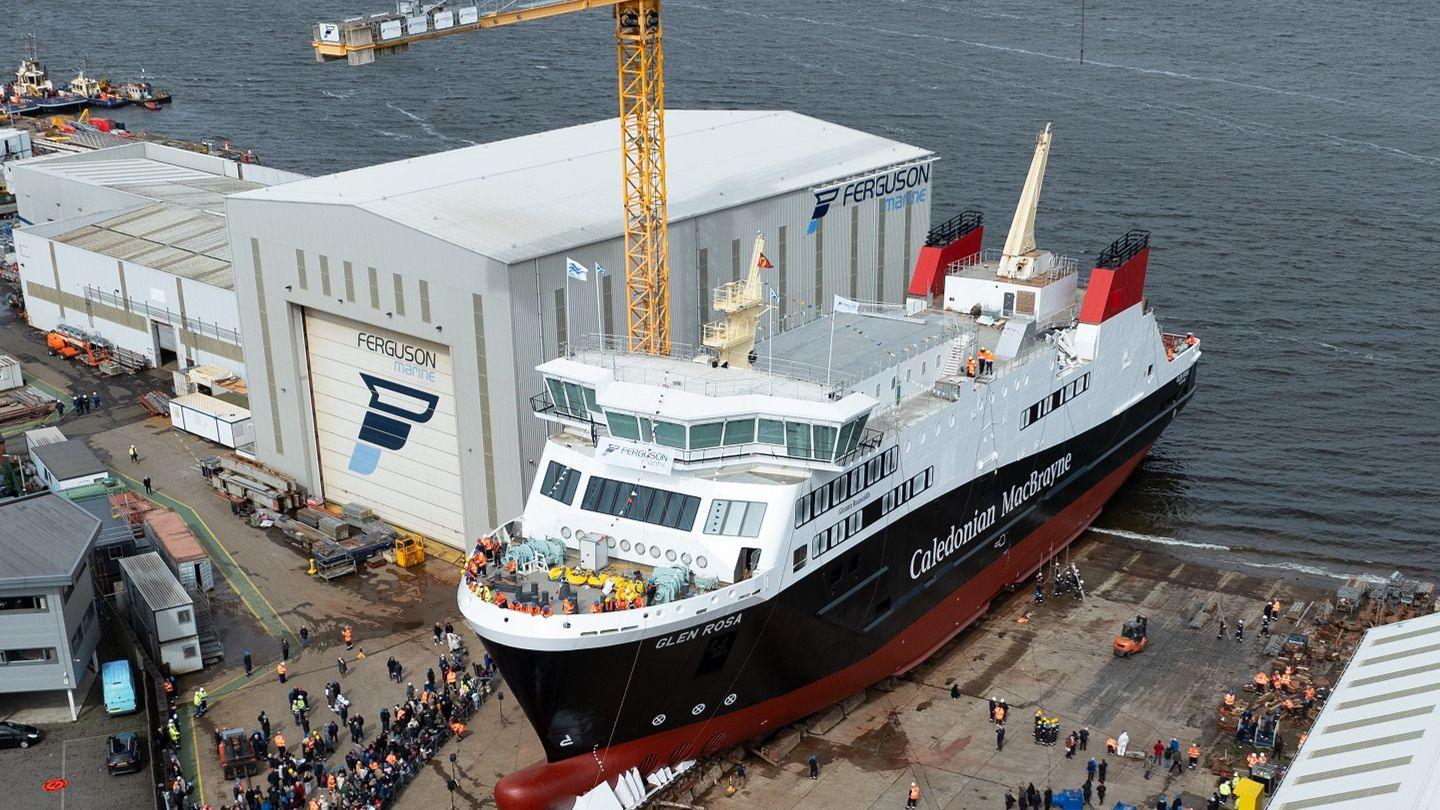New delivery delay for CalMac ferry Glen Sannox
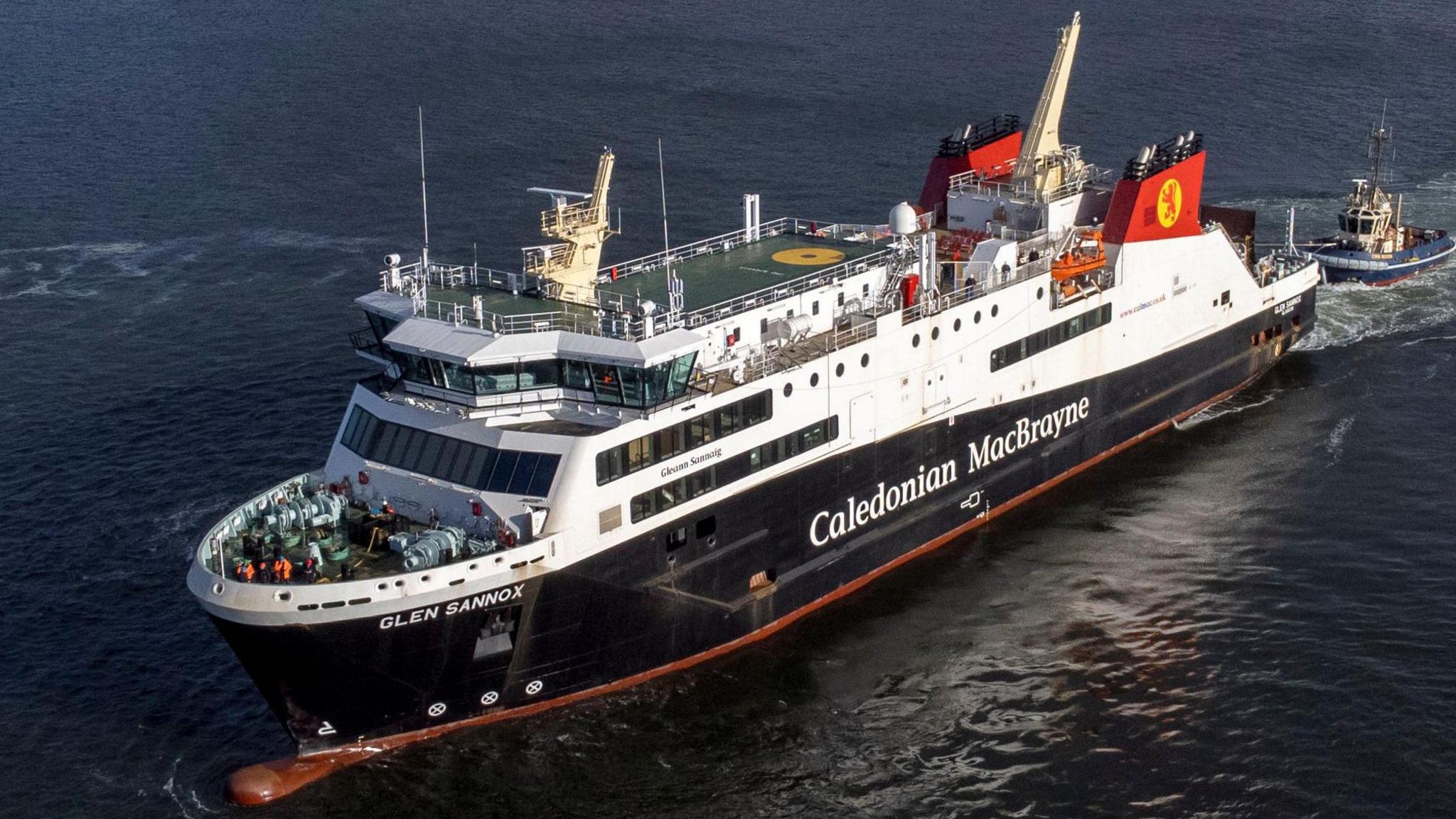
Glen Sannox is now due for delivery by 30 September
- Published
Delivery of a long-delayed CalMac ferry has been put back again, the Ferguson Marine shipyard has confirmed.
Glen Sannox is now due to be handed over by the end of September, about five weeks later than the previous deadline.
Interim chief executive John Petticrew said final work, particularly involving the liquefied natural gas (LNG) propulsion system, was taking longer than expected.
The ship and its sister vessel, Glen Rosa, were originally due for delivery in 2018 but have faced repeated design and construction challenges.
Were Scotland's new gas-powered ferries a bad choice?
- Published20 April 2024
Long-delayed Ferguson ferry begins sea trials
- Published13 February 2024
There was no further update on cost estimates, which are now being recalculated.
Mr Petticrew had previously said Glen Sannox would be handed over to government-owned ferries company CMAL in the week beginning 19 August.
But in his monthly update to MSPs , externalhe said the nationalised shipyard had "regrettably identified an additional number of areas which require to be completed" before acceptance trials can take place.
"The majority of these works will have to take place in relatively small engine spaces, which are already delayed by to the prolonged installation of the LNG system, due to the complexity of installation and need to examine the integrity of the pipework," he added.
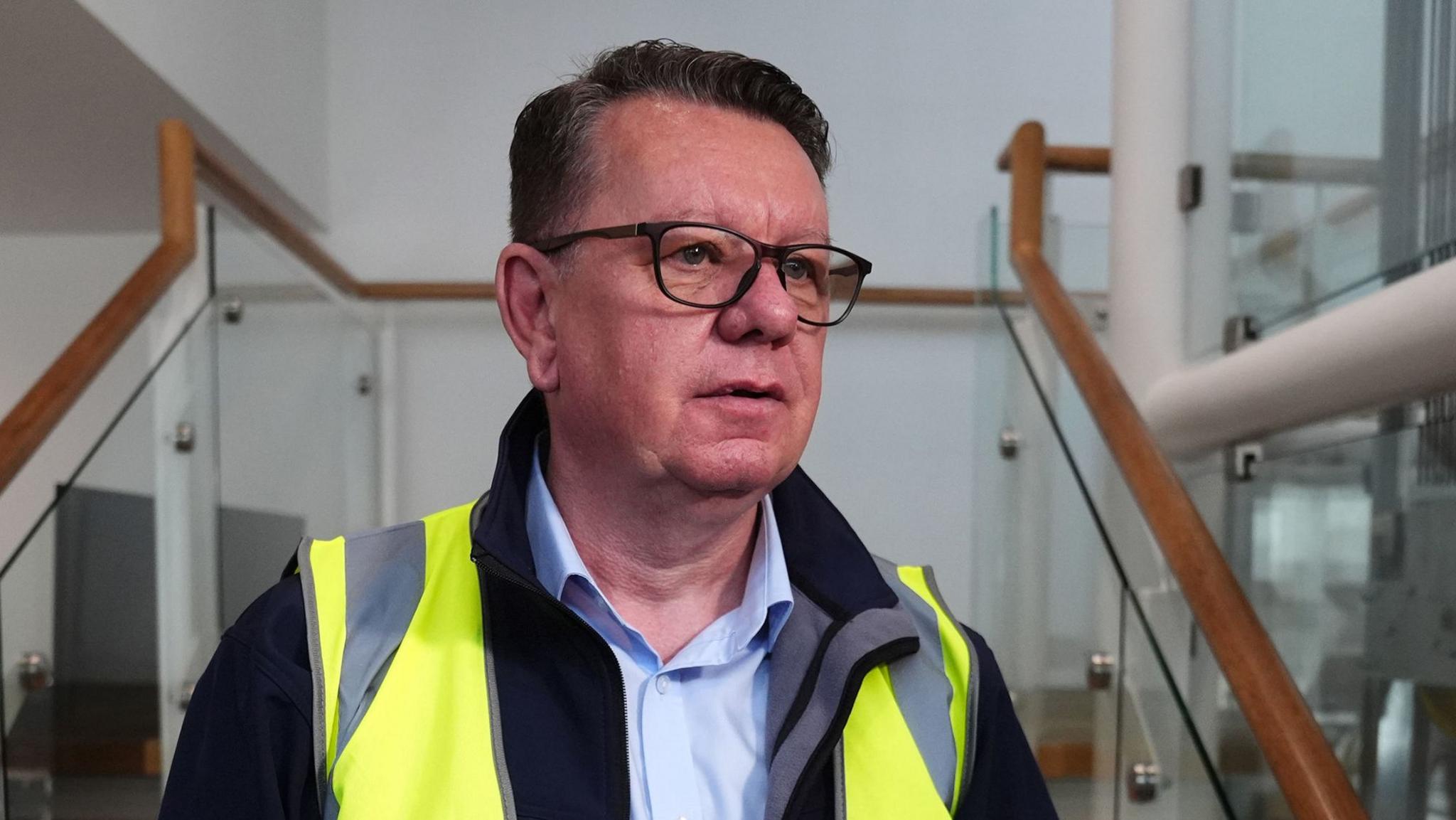
John Petticrew said new issues had been discovered as final work commissioning the LNG systems takes place
He said the congested work spaces on the ship meant there was a limit to how many people could work safely in them at any one time.
A new handover deadline of 30 September would give the yard "breathing space" to consider any unknown issues during the LNG trials, he said.
LNG technology is well established worldwide but the two dual-fuel vessels are the first of their kind built in the UK and are considered "first in class".
Those closely involved in the project have previously spoken of huge difficulties fitting the LNG equipment into the tight machinery spaces on the ship.
Former chief executive David Tydeman described the design challenges as more complex than for a Royal Navy warship.
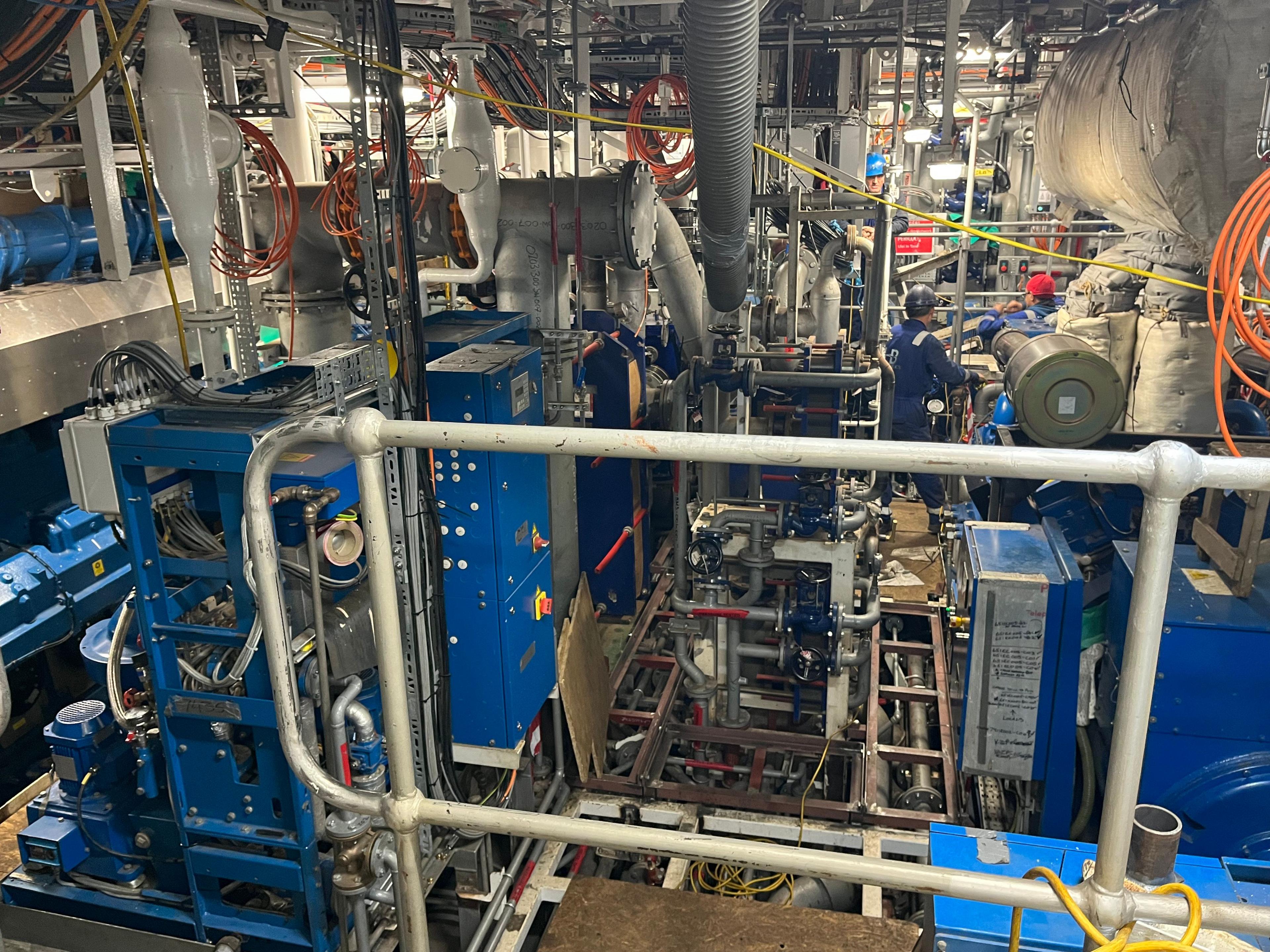
The machinery spaces on Glen Sannox are congested, making work difficult
The two ships are destined for CalMac's busy Arran route which has been under pressure recently. The main ferry Caledonian Isles has been out of action for major repairs since February, although it is expected back in service later this month.
Once Glen Sannox is handed over, CalMac will need to conduct several weeks of crew familiarisation trials before the ship can start carrying passengers.
The order for the two dual-fuel ferries was placed in 2015, a year after the Ferguson shipyard in Port Glasgow was rescued from administration by an investment firm led by businessman Jim McColl.
At the time it was hailed as the start of a Clyde shipbuilding revival but the build soon ran into trouble.
Ferries agency CMAL blamed poor management decisions, while Mr McColl insisted the difficulties arose from interference and a poorly-developed design specification that had been put out to tender by CMAL far too early.
Amid an angry stalemate over claims for extra costs, at the time totalling £66m, the firm went bust again and was nationalised.
Since then costs have risen further and the total cost of building the two ferries is expected to be more than £400m - four times the original £97m contract price.
Uncertain future
The Ferguson Marine shipyard recently secured £14.5m from the Scottish government for investment in equipment that could make the yard more competitive when bidding for contracts in the open market.
But at the same time it was told it would not be directly awarded a contract for seven smaller CalMac ferries which will go out to open tender this autumn.
The all-electric vessels are similar to ones the yard has built on-time and on-budget in the past, and the yard believes they could provide a steady pipeline of work vital to improving productivity and restoring its reputation.
Mr Petticrew had said the shipyard still intends to bid "aggressively" for the contract but some observers believe it might struggle in a contest with overseas yards which have lower overheads.
Ferguson Marine employs about 300 workers, including around 50 apprentices, in an area with high levels of deprivation that has seen 1,200 job losses over the past 18 months.
Despite the difficulties with the large CalMac ferries, the shipyard's workmanship is said to be high quality, and the yard is hopeful of winning more subcontracting work on the Type 26 frigates being built upriver by BAE Systems in Govan.
Related topics
- Published26 November 2023
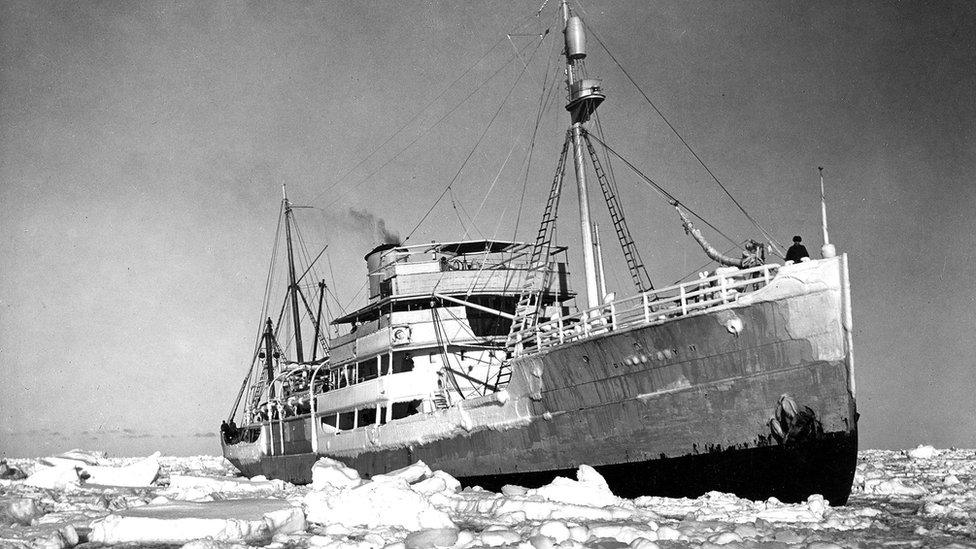
- Published16 July 2024
